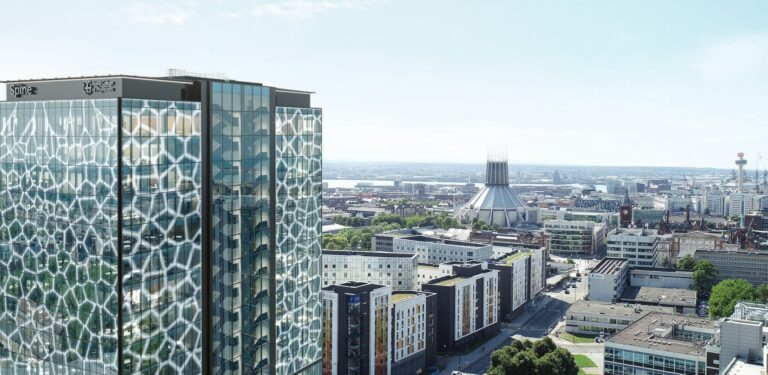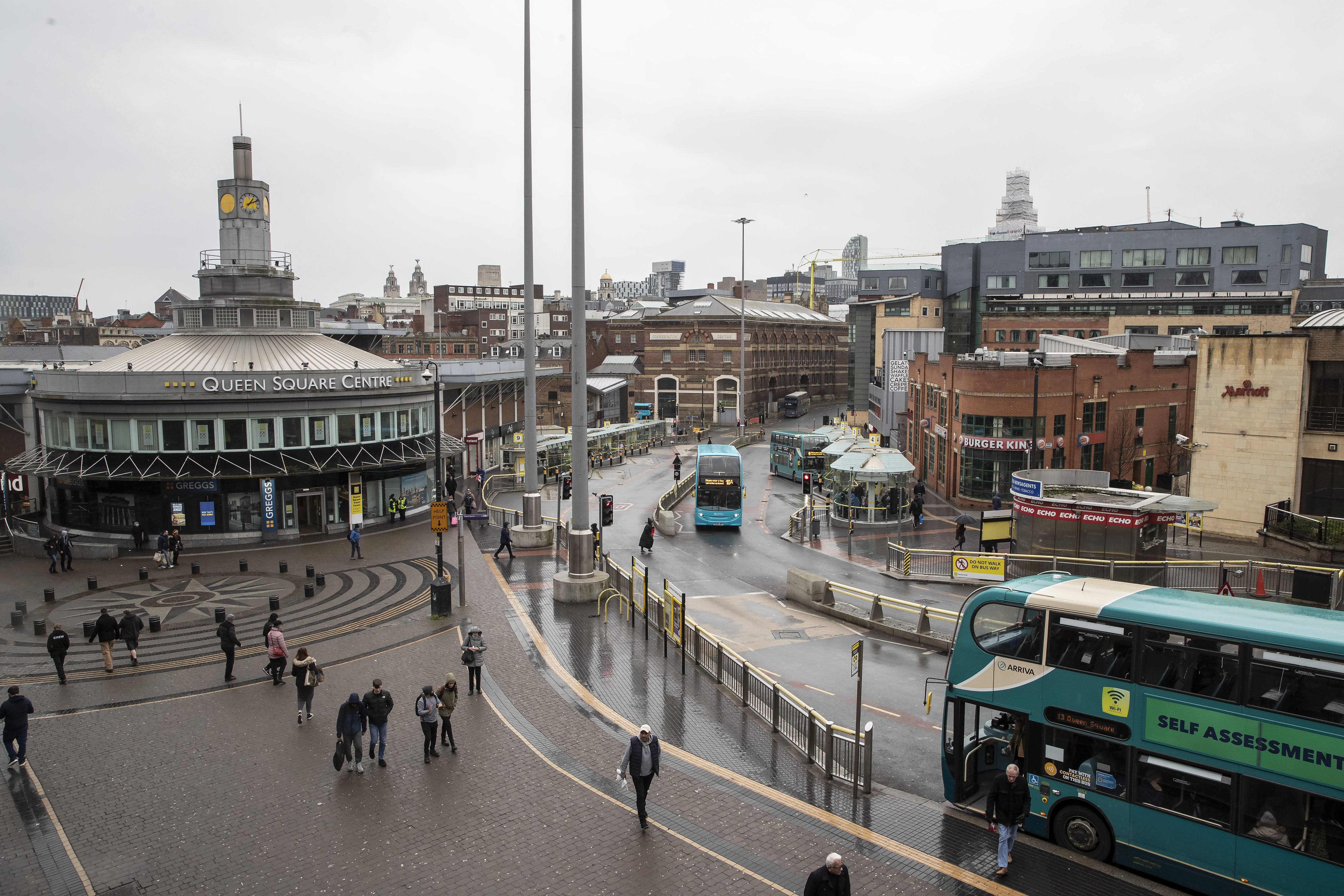Back to Home
Modern Slavery Statement
This Modern Slavery and Human Trafficking Statement (this ‘Statement’) will be reviewed and updated on an annual basis by the Executive Director Corporate Development and Delivery. In the case of any minor changes, this Statement will be presented for approval to the Safeguarding Development Group. However, as a minimum, this Statement will be presented for re-approval to the Liverpool City Region Combined Authority every five years or earlier, if there is a significant change in relevant legislation and its associated obligations.
Voluntary Slavery and Human Trafficking Statement
This Statement is made pursuant to section 54(1) of the Modern Slavery Act 2015 (the ‘Act’) and the Modern Slavery Act 2015 (Transparency in Supply Chains) Regulations 2015. This Statement is published by Liverpool City Region Combined Authority, Merseytravel and on behalf of its subsidiary companies (‘we’, ‘us’, ‘our’, ‘Organisation’). This is our statement for the financial year ending 31 March 2025 and sets out the steps we have taken and will take to identify modern slavery, to ensure it is not occurring in the Organisation and to reduce to the absolute minimum the risk of modern slavery occurring elsewhere in its supply chains.
Modern slavery is a crime and a violation of fundamental human rights. It takes various forms, such as slavery, servitude, forced and compulsory labour and human trafficking, all of which have in common the deprivation of a person’s liberty by another in order to exploit them for personal or commercial gain.
We oppose slavery and human trafficking in all its forms. This Statement sets out the steps we took in 2023 and sets out the ongoing work we are carrying out in 2024 to understand potential modern slavery risks within our Organisation’s structure and supply chains, as well as the steps taken to eradicate these risks. These steps include establishing an internal Working Task and Finish Group to be responsible for progressing the actions set out in this Statement and reporting on progress in our next statement.
About Us
Liverpool City Region has a population of approximately 1.6 million, which has seen growth of 3% since 2011 (Census 2021 data). The City Region has experienced a period of significant regeneration and economic growth since 2000, which whilst very welcome, also contributes to the conditions where modern slavery can enter supply chains.
At the time of writing, Liverpool City Region Combined Authority is led by Metro Mayor Steve Rotheram with the elected Mayor of Liverpool and the leaders of Halton, Knowsley, St Helens, Sefton and Wirral councils. It is a public body created as the result of a ‘Devolution Deal’ with central government, with the intention of bringing powers and funding back to the City Region to improve the quality and responsiveness of decision making and local accountability. Merseytravel is the strategic transport advisor to the Liverpool City Region Combined Authority and is also responsible, on its behalf, for transport delivery.
The Organisation delivers impact in the communities of the City Region by making investments in transport infrastructure, skills, culture, digital and housing, as well as delivering services and programmes for public transport, homelessness, adult education and employment. Currently, 1,054 staff are directly employed by the Liverpool City Region Combined Authority.
At the time of writing, public bodies are not required to make a modern slavery statement under section 54 of the Modern Slavery Act 2015. However, we are making this voluntary statement to show our commitment to ethical trading principles and to set out the steps we are taking to identify risks and tackle modern slavery and human trafficking in our business and in our supply chains.
Our Mission
Fairness and Social Justice are at the core of our mission, hence the commitment to tackling the injustice of modern slavery. We also acknowledge it is our duty to ensure that taxpayers’ money is not inadvertently funding criminal activity and the misery it creates, and to protect vulnerable workers both in the UK and elsewhere. We recognise that modern slavery is a regional issue and our action plan for this year will look at what we can do to help eliminate slavery and human trafficking within our regions.
We have a zero-tolerance approach to modern slavery. We are committed to acting ethically and with integrity in all our relationships. We are committed to implementing and enforcing effective systems and controls to identify and reduce the risk of modern slavery occurring in our own business or in any of our supply chains.
We expect the same high standards from all of our contractors, suppliers and other business partners. As part of our tender and procurement processes, we are aiming to update our standard contracts with specific prohibitions against the use of forced, compulsory or trafficked labour or anyone held in slavery or servitude, whether adults or children, and we expect our suppliers to hold their own suppliers to the same high standards.
Our Fair Employment Charter (the ‘Charter’) was launched in 2021, striving to make our region the fairest, most equitable place in the country to work or run a business. Internally and across the City Region we are trying to make sure we all do the right thing: pay the Real Living Wage, clamp down on the insecure work or zero hours contracts, offer a real seat at the table to trade unions and give staff opportunities to progress and thrive. The Charter was developed in partnership with over 300 local employers of all sizes, trade unions and workers and is designed to promote businesses who offer secure, properly paid jobs and treat staff well. The ultimate aim of the Charter is to identify and support organisations to implement fair and safe employment practices across the region and celebrate them accordingly, and to build the broader movement of employers to encourage and embed fair employment practices within the City Region.
Policies
Our newly created Modern Slavery Policy reflects our commitment to acting ethically and with integrity in all our business relationships, to implementing and enforcing effective systems and controls to ensure slavery and human trafficking is not taking place anywhere in our supply chains. We also have the following internal policies in place relevant to modern slavery, which we continuously review and update:
- Safeguarding Policy
- Confidential Reporting (Whistleblowing) Protocol
- Anti-Money Laundering Protocol
Due diligence and risk assessment
To help identify and monitor the risk of slavery and human trafficking in our supply chain we are reviewing our procurement practices in line with Government guidance on tackling modern slavery in government supply chains (reference PPN 02/23). The guidance is aimed at procurement and commercial practitioners at all levels who are operating in government, but the contents can be applied by any organisation in the public sector.
Part of our review will include updating our tender, procurement and grant agreements with anti-slavery and human trafficking provisions with suppliers and grant recipients. We are looking to raise awareness and support potential suppliers or applicants from the outset by enquiring about their anti-slavery and human trafficking practices before we enter into a contractual relationship with them. As part of this work, we will also be mapping high risk goods and services agreements with our existing suppliers and grant recipients by raising awareness and supporting any modern slavery concerns.
Our Safeguarding Team is working closely with our Housing First and Homelessness Commissioning Team to work with existing Police contacts in relation to reducing modern slavery within our existing projects, in particular, in relation to the rising issue of cuckooing in our City Region and how to recognise the signs. There are different types of cuckooing:
- using a property to grow, deal, store or take drugs;
- using a property for sex work;
- using a property to store weapons;
- taking over a property as a place for someone to live;
- taking over a property to financially abuse a tenant.
The most common form of cuckooing is when a person’s home is taken over to distribute drugs, the person’s property is taken as a place to live and the property is taken over to financially abuse the tenant.
Cuckooing often begins when the vulnerable adult is befriended by those that want to take over the property. The vulnerable adult may be offered something, this could be a relationship, friendship, drugs and/ or alcohol, money or clothing.
Previous incidents of cuckooing have been identified in the Organisation’s Housing First Service. Ongoing risks have been identified as service users tend to be more vulnerable and have multiple support needs than others in the community and are therefore targeted when they are given a new tenancy. We currently work with adult social care, Police and the housing associations to support the service user and stop the cuckooing as soon as the Housing First Team have any concerns.
Effectiveness in combatting slavery and human trafficking
We are intending to use the following key performance indicators (KPIs) to measure how effective we have been at ensuring that slavery and human trafficking is not taking place in our Organisation, our services or supply chains:
- The percentage of high risk goods and services agreements with suppliers and sub-contractors vetted for ethical labour practices.
- The number or percentage of high risk contracts including anti-slavery and human trafficking provisions.
- The number of inspections of direct suppliers and sub-contractors in our supply chains in the past year.
- The number of reported breaches in the past year (reported on an annual basis).
- Percentage of staff receiving training on identifying and addressing the risk of slavery and human trafficking in our Organisation and supply chains.
Training
To ensure a high level of understanding of the risks of modern slavery and human trafficking in our supply chains and our Organisation, we will provide training to all staff. Our initial training programme will focus on adherence to our new Modern Slavery Policy, raising modern slavery awareness and provide guidance to our employees on where to report concerns and seek help. At the time of writing, there are plans for all employees to receive mandatory Level 1 safeguarding training which will include modern slavery prevention. There are also plans for refresher training and enhanced Government recommended training for employees involved in procurement decisions and procedures.
Further steps
Following a review of the effectiveness of the steps we are currently taking in 2024/2025 to identify and eliminate slavery or human trafficking in our supply chains we intend to take the following further steps to combat slavery and human trafficking:
Over the course of the next year, we intend to:
- Appoint a political lead for modern slavery;
- Look at our accreditations and consider introducing a Supplier Code of Conduct as a minimum standard of behaviour expected of our suppliers to achieve external accreditation;
- Map its supply chains to identify high risks of modern slavery based on country, sector, high spend and strategically critical factors;
- Review and update tender documentation (to include our existing Monitoring Questionnaire) to ensure modern slavery and human trafficking issues are fully addressed, including clauses to ensure contractors with a turnover in excess of £36m pa have a Modern Slavery Statement;
- Develop appropriate key performance indicators (KPIs) for future reporting on modern slavery to measure progress and benchmark against this year’s actions;
- Provide suitable training and awareness to staff, and include modern slavery as part of induction for new starters;
- Participate in existing Combined Authority partnership working focused on Serious Organised Crime, which includes modern slavery;
- Develop an annual communications plan in relation to its work on modern slavery, for both internal and external communications;
- Become a member of the Merseyside’s Police & Crime Commissioner Modern Slavery Network which brings together partners from across civic society to examine modern slavery in the City Region and to promote best practice in identification, prevention and mitigation; and put effective interventions in place to protect potential victims across the City Region;
- Convene relevant constituent authority officers to exchange intelligence and best practice in relation to modern slavery in the Organisation;
- Within 12 months, review and present an updated version of this published Modern Slavery Statement.
Reporting Concerns
If anyone suspects modern slavery or human trafficking
If an employee or anyone suspects workers are being subjected to modern slavery or receives an anonymous ‘tip-off’, they should involve law enforcement agencies:
- In the UK, if someone is in immediate danger, report it to the Police by dialling 999.
- If you are concerned about a potential victim, or suspicious about a situation that is potentially exploitative, you can call the Modern Slavery Helplineon 08000 121 700, or call the Gangmasters and Labour Abuse Authority on 0800 432 0804 or submit a report online.
In cases of suspected child labour exploitation in the UK, Local Authority Children’s Services and the Police should be notified immediately by dialling 999.
For internal employees, please refer to the internal reporting advice in our Modern Slavery Policy.
This voluntary modern slavery and human trafficking statement is made pursuant to section 54(1) of the Modern Slavery Act 2015 and constitutes the Liverpool City Region Combined Authority’s and Merseytravel’s modern slavery and human trafficking statement for the financial year ending 31 March 2025. It was approved by the Liverpool City Region Combined Authority on 15 March 2024.
We are committed to reviewing and refreshing this Statement on an annual basis.



